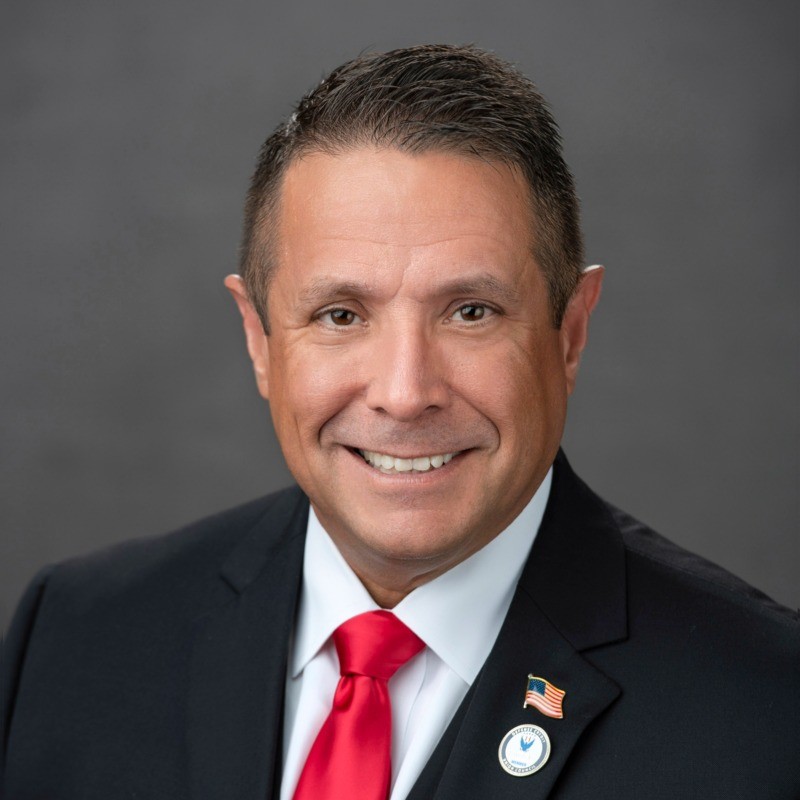5 minutse
The Defense Credit Union Council is here to help your credit union better serve veterans, military members and their families.
The Defense Credit Union Council is a long-time sponsor of the Military Child Education Coalition. A recent MCEC study found that at least one military-connected child lives in every zip code nationwide. This means it’s very likely that at least one veteran lives in your field of membership—which means every credit union has a veteran in its field of membership. Thus, credit unions have an incredible reach in the veteran community, and DCUC is there to help credit unions connect with and serve veterans, military members and their families.
DCUC is working hard to help more of America’s credit unions serve veterans in their communities through initiatives like our new Veterans Financial Guide. This free downloadable guide helps veterans understand the wide array of benefits available to them. Credit unions can co-brand the guide to share with their local VFWs and American Legions. We have other publications to help you, too. Our Guide to the Military’sBlended Retirement System is available in both English and Spanish.
DCUC also helps credit unions participate in the Veterans Benefits Banking Program. This program from the U.S. Department of Veterans Affairs is designed to bring financial services to unbanked vets. Any credit union can join VBBP if they offer a free checking account and financial wellness training—two services already core to credit unions.
In April, we became a sponsor of the Veterans Saves program. Coordinated by the non-profit Consumer Federation of America, this financial literacy campaign timed to Military Saves Week in April provides tools to empower veterans financially.
DCUC also helps credit unions understand military life and speak the language of military members and their families. This includes training on the Servicemembers Civil Relief Act, which protects active-duty military from certain legal and financial obligations. It’s important to appreciate the unique pressures of military spouses, who make many household financial decisions on their own when service members must give their full attention to being mission-ready.
Helping Military Members Helps the Underserved in Your Community
Veterans remain an underserved population, which is why America’s credit unions can have a positive impact on your communities through serving active and retired servicemembers.
For instance, CUNA’s analysis of 2021 Home Mortgage Disclosure Act data applicants for first mortgage originations at military credit unions reflected an average income of $130,189—well below the $169,164 average at U.S. commercial banks (more details on this statistic here). That analysis also showed that military credit union first mortgage loan amounts averaged $282,486—well below the $327,840 average at U.S. commercial banks; 10.8% of military credit union first mortgage loan originations were made to African Americans—over double the 4.8% share of total originations at commercial banks; and 10.2% of military credit union first mortgage loan originations were to Hispanic Americans—nearly double the 6.6% share of total originations at commercial banks.
DCUC-member CUs are experienced in offering such specialized services as guaranteed pay during government shutdowns; making paying bills back home easier during deployments; assisting veterans who struggle with post-traumatic distress and/or life-altering injuries; and protecting them from scams and fraud.
Finally, many servicemembers struggle with financial challenges from transitioning to civilian life. And according to the Military Family Advisory Network, one in six military and veteran families experienced food insecurity in 2022. That means nearly 250,000 active-duty servicemembers and two million veterans nationwide worry about where their next meal comes from. That is unacceptable. If you want to make a difference, please consider donating to local food banks or the Armed Services YMCA, which has an excellent program for helping military and civilian parents struggling to feed their families.
DEI, Advocacy and Membership
With its experience promoting diversity, equity and inclusion, the military provides lessons for credit unions on how to expand their DEI efforts. Though the military is not perfect, the military did teach me to “mentor outside your race and seek mentors outside your race.” I’m proud to have played a role in the development of the African-American Credit Union Coalition’s Cross Cultural Exchange Program, which fosters understanding among people with different lived experiences by pairing credit union professionals across such traditional divides as race, gender, age and geography.
Besides directly serving the military community, DCUC increasingly advocates for credit unions on a variety of issues. With extensive military experience and working with the Department of Defense, DCUC is the industry’s trusted source and provides credibility on topics affecting military members, such as potential harms from using cheap, unsecured interchange networks, to discrimination against military members in financed purchases.
Our roots are with credit unions serving on military installations. However, DCUC invites all credit unions to join us in serving those who serve our country. Every credit union in America can do that. Plus, our affordable dues—currently capped at $1,000 annually—grant access to all DCUC resources. Consider the optics in your community when your credit union is better engaging military members, veterans or their families. We look forward to helping you connect with and serve the military community.
Tony Hernandez joined Defense Credit Union Council as its chief operating officer in August 2016 and was selected as its president/CEO in April 2017. DCUC represents more than 35 million credit union members who serve the U.S. Armed Forces and our nation’s veterans worldwide. Hernandez holds an executive education certification from Wharton and has more than 25 years of military and financial experience.






